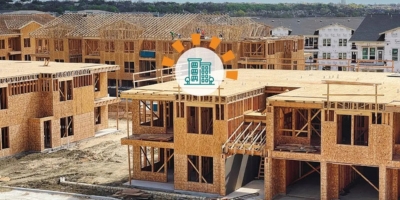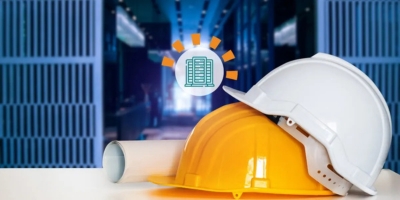Navigating Construction Supply Chain Challenges
Retail construction leaders face mounting procurement challenges — how are the top teams staying ahead?
Get reliable waste solutions for construction jobsites:
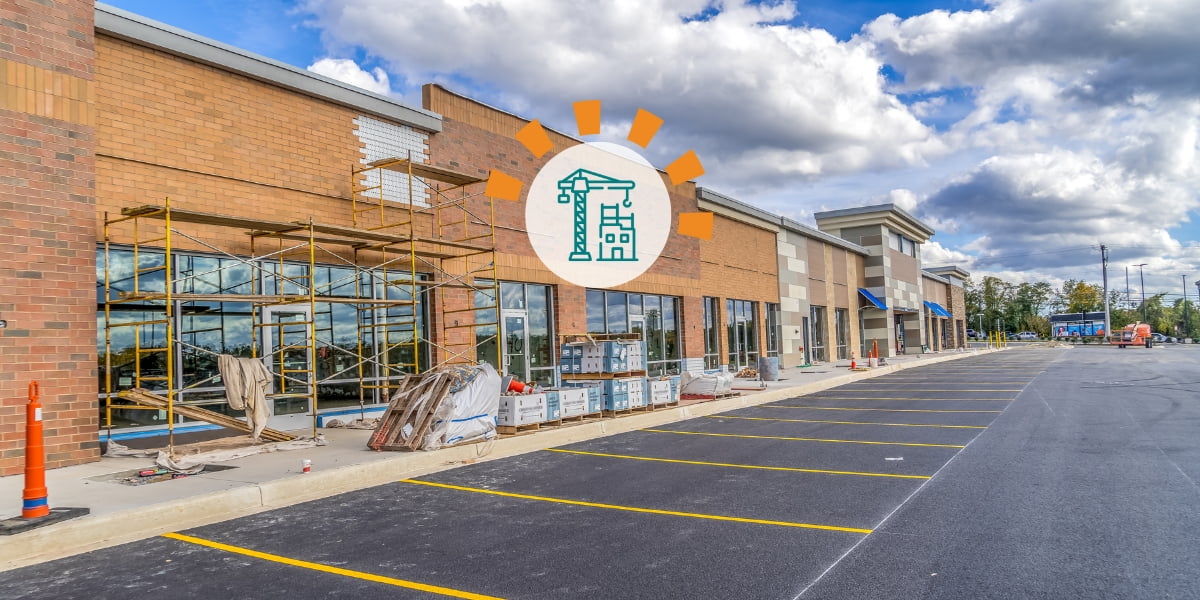
Retail Construction Delays? Here's How to Break the Supply Chain Bottleneck
With 2025 well underway, project managers, superintendents and VPs of construction face a familiar but increasingly intense set of challenges in retail construction. Labor shortages, shifting economic conditions, and emerging technologies like AI and automation continue to reshape the market rapidly — yet the most disruptive force still gripping the industry remains the strained supply chain.
At Dumpsters.com, we work with construction professionals nationwide, and we’re seeing firsthand how these supply chain hurdles can ripple through every phase of a retail buildout. Whether you’re a restaurant chain managing tenant improvements or a big box national brand launching a ground-up location, it’s critical to understand the roadblocks and how to navigate them.
Hear from Joe Nickels, one of our Enterprise Sales Managers, and how he's helped retail construction projects stay on track.

“We’ve supplied 10k+ dumpsters for retail construction jobs ranging from 10k square feet to 150k square feet across all 50 states.”
Supply Chain FAQs
How do supply chain issues impact retail expansion plans?
Supply chain issues can impact retail expansion plans by limiting product availability, increasing operational costs and complicating logistics planning — making it harder for retailers to meet timelines within budget.
What are the main causes of construction supply chain issues?
The main causes of construction supply chain issues include:
- Manufacturing backlogs
- Shipping terminal congestion
- Freight container scarcity
- Labor shortages
- Political instability
- High inflation
- Rising interest rates
- International tariffs
What are the benefits of working with a nationwide dumpster provider during supply chain challenges?
The benefits of working with a nationwide dumpster provider include consistent service, quick response times and flexible scheduling across all sites. Some also offer LEED-informed waste diversion and recycling support, helping reduce delays, control costs and maintain project timelines no matter where your jobs are located.
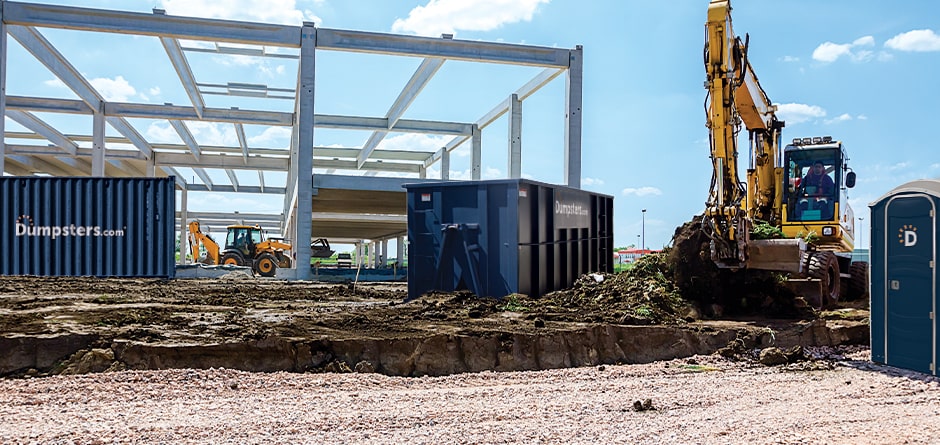
Supply Chain Disruptions and Rising Construction Costs
According to an industry outlook published by the Associated General Contractors of America (AGC) and construction software creator Sage, 54% of commercial construction firms cite material delays and price fluctuations as the top challenges going into 2025, especially for construction essentials — like steel, lumber, piping and ductwork.
What Are the 5 Main Reasons Materials Are So Hard to Get?
Global Manufacturing Backlogs
Many manufacturers are still catching up on production lost during the pandemic years, especially for specialized building materials.
Terminal Congestion & Freight Costs
Ongoing congestion at key ports and a shortage of shipping containers continue to delay international shipments.
Labor Shortages in Logistics
According to Ryder System Inc., the U.S. trucking industry is short more than 78,000 drivers.
Geopolitical Uncertainty
Conflicts in trade routes and unpredictable tariffs are slowing the movement of raw materials and impacting costs.
High Inflation & Interest Rates
Financing construction projects has become more expensive, while the cost of materials has increased an average of 19% since 2020.
These disruptions don’t just delay projects — they threaten retailer expansion plans. As timelines drag on and costs rise, retailers might scale back or cancel buildouts, putting potential strain on future projects.
How Can Retail Construction Leaders Stay Ahead?
Despite these challenges, forward-thinking construction leaders are finding ways to adapt. Here are a few strategies gaining traction in 2025:
1. Diversify Your Supplier Network
Work with a broader set of regional and national suppliers to reduce over-reliance on single sources and establish backup vendors early in the planning process.
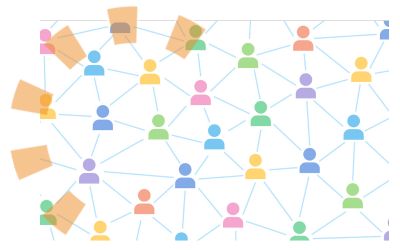
At Dumpsters.com, we've built a trusted nationwide hauler network with 2,500+ reliable partners, offering unique nationwide solutions at the most competitive rates.

“With a single point of contact, you gain access to consistency across locations, faster response times, integrated logistics support, leverage buying power, centralized billing and expert waste diversion reporting.”

2. Embrace AI for Smarter Planning
AI-powered forecasting tools help teams predict demand spikes and better schedule material deliveries, improving planning accuracy and avoiding delays or bottlenecks.
3. Prioritize Flexible Scheduling
With fluctuating lead times, it’s more important than ever to create flexible construction schedules that allow for re-sequencing tasks when materials are delayed.


4. Cross-Department Communication
Stronger communication among procurement, project management and subcontractors enables quicker responses when unexpected challenges or changes arise.
Meet Our Enterprise Portal
Our self-service portal is designed to help companies save valuable time and keep teams connected with real-time scheduling and invoice tracking.
5. Focus on Customer Experience
Minimizing delays ensures jobs stay on track, even when sourcing challenges arise, keeping projects moving forward and budgets from boiling over.


"In an industry where timing, coordination and cost control are everything, our customer-first approach isn’t just a philosophy — it's a practical advantage. This allows us to act as an extension of your team, not just a vendor."
Stay Focused on the Big Picture — We’ll Clear the Way for What's Next
At Dumpsters.com, we understand what’s at stake when you're balancing national rollout strategies, aggressive timelines and tight budgets. Our nationwide inventory and responsive service model ensure that dumpster delivery, swap-outs and removals stay off your worry list, so your team can focus on the job at hand.





